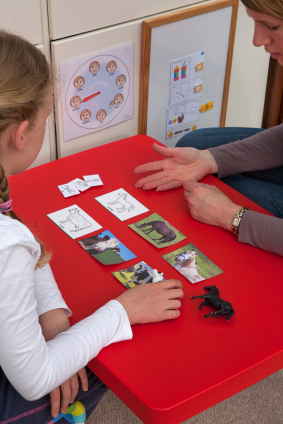 The purpose of this post is to recommend an excellent book for parents of children with autism, and to share some personal comments on my reactions after reading this book. The book is Educating Children with Learning and Behavior Problems, by Dr. Martin Kozloff.
The purpose of this post is to recommend an excellent book for parents of children with autism, and to share some personal comments on my reactions after reading this book. The book is Educating Children with Learning and Behavior Problems, by Dr. Martin Kozloff.
Written for parents
This book, written for parents, explains the basic principles of Applied Behavior Analysis, especially the role of positive reinforcement in teaching skills to special needs learners. It explains how to assess a child’s skill levels, set up a home education program, and teach functional, communication and self-help skills. In the back of the book is a detailed Behavior Evaluation Scale, which covers many aspects of a child’s development, including such things as eye contact, imitation, fine and gross motor skills, play skills and communication skills.
Comprehensive
Why is this book so good? First, it lays things out clearly for parents. As autism parents, we all have to learn about Applied Behavior Analysis (ABA) and the arcane language of positive reinforcement, reinforcement schedules and concepts such as “satiation.” This book describes these concepts in an easy-to-understand way. Plus, you do not become overwhelmed while reading this book. After a discussion of a new topic, Dr. Kozloff asks you to stop, take a break and make yourself a sandwich or get a fresh cup of coffee!
Second, the book provides clear and precise instructions for exactly how to measure behavior, write things down, and set up a teaching program. There is an extremely helpful chapter on handling common problems of teaching. Some of the problems he addresses are ineffective consequences (reinforcers are not working), not reinforcing often enough, rewarding the wrong behavior (it happens!), not breaking down a behavior into small enough increments, and over-prompting.
Third, the book provides practical advice on how to measure a child’s progress, keep track of a program, set new goals, and most importantly, how to manage one’s own behavior so that, as a parent, you are not accidentally reinforcing the wrong behaviors.
Distinguished contributor to the autism community
The author, Dr. Martin Kozloff is a highly experienced and distinguished contributor to the autism community. He is currently the Watson Distinguished Professor of Education at the University of North Carolina in Wilmington. In addition to this book, he has written many others: Reaching the Autistic Child, 2nd Edition: A Parent Training Program, Improving Educational Outcomes for Children With Disabilities: Guidelines and Protocols for Practice, plus many journal articles and other papers. He is currently serving on the Panel of Professional Advisors to the Autism Society of America.
Not only is this book excellent, it is completely affordable and widely available on the used book market and Amazon. I paid $2.17 for my copy, and it is worth a hundred thousand times that amount. I have seen copies available for as little as $.51. For this miniscule amount of money you get outstanding knowledge and expertise, and a book that you can keep going back to for information and advice.
A lost opportunity for America
One particular point: this book was published in 1974. I was stunned to realize that information about Applied Behavior Analysis, how to assess a child, and how to set up a program using positive reinforcement was available so long ago, yet still is not accessible to parents. This body of knowledge is a major American contribution to scientific discovery. More than forty years have passed and we, who need it so much, cannot get access to treatment based on this body of knowledge for our children. Think of where we would be now if this information had been implemented by educational and medical institutions and integrated into common practice. We could have had premier treatment facilities around the country, with outreach to the rest of the world. However, it is never too late. Let’s hope that this information, this body of scientific knowledge, becomes available to all families facing autism and indeed all parents and educators.
Comments are closed.